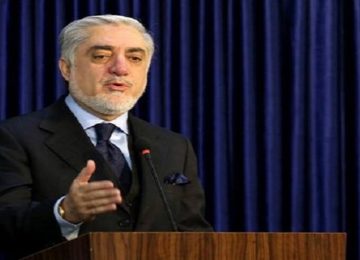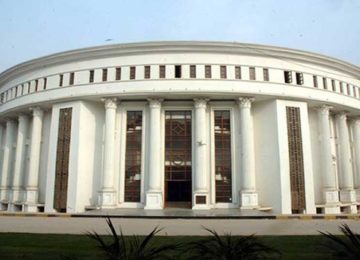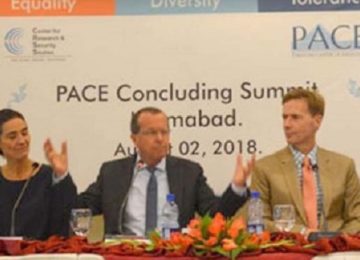December 16, 2019

China’s State Council Information Office recorded a befitting rebuttal to Washington’s move of passing a law about China’s treatment of Uyghurs in Xinjiang, labeling it as a blatant human rights violation. Shohrat Zakir, Chairman of Xinjiang Uygur Autonomous Regional Government, along with other Chinese official gave a detailed account of extremist and terrorist activities in the region and how the Chinese government approached the matter with a comprehensive strategy in a news conference on December 9, 2019. They also proved their rationale with facts and figures. For instance, there has not been a single terrorist attack in Xinjiang during past three years. Also, economic activity is thriving in recent years.
The Uyghur Human Rights Policy Act of 2019 passed by United States’ House of Representative has been termed as a breach of international law and an intrusion into the domestic affairs of China by the Chairman of Xinjiang Uygur autonomous regional government who called out the US on its two-faced approach on terrorist attacks and religious extremism.
He stated that measures against terrorist attacks and extremists taken in Xinjiang are no different from those in many other countries, including the US. Some people in the US should discard their bias, and not practice double standards. Their biasness and double standards will make them stand opposite to the 1.4 billion Chinese people, the world, and to the morality and conscience of human beings, he said.
Thousands of terrorist attacks had occurred in Xinjiang from 1990 to the end of 2016, resulting in the deaths of many innocent civilians, as well as hundreds of police officers – including two Uygurs, prior to the implementation of the government’s de-extremism measures.
The acts of terror in Xinjiang culminated in the massacre in Urumqi on July 5, 2009, while an October 2013 attack in Beijing and another in March 2014 in Kunming, Yunnan province, spread fear outside the autonomous region. People across China wondered what had gone wrong, and what could be done. However, the Chinese government’s answer was decisive. Alongside resolute anti-terror responses, a large-scale de-extremism campaign was launched.
Since then, the Xinjiang Uygur autonomous region has taken utmost efforts to eradicate the conditions that breed terrorism and religious extremism while protecting the citizens’ basic rights from the harm of terrorism and extremism, said the Chairman. Through publicity and education, and lawfully establishing vocational education and training centers, Xinjiang has spared no efforts in saving those who committed petty crimes or minor offences while involved in terrorism and extremist activities.
Further, Xinjiang has not seen any terror-related attack in the past three years, with infiltration of extremism being effectively contained, social and public security notably improved, and people of all ethnic groups living and working in peace, he added.
Thus, Beijing views the Act to be ignoring the ground realities and maliciously distorting the human right situation in Xinjiang to accuse the Chinese government’s policies on governing the region without any foundational basis. “The region and local people strongly condemn and firmly oppose this superpower hegemony,” Zakir added. The Act has brought significant backlash in China with the officials claiming that no force can stop Xinjiang’s stability, development and prosperity.
According to China Daily, the Western media had remained silent when China Global Television Network, the national broadcaster, aired multiple documentaries providing graphic accounts of terrorist attacks in and related to the Xinjiang Uygur autonomous region, including never-before-available details. However, it did not hesitate in weaving a false narrative around Xinjiang, according to Zakir.
Nonetheless, China’s State Council Information Office decided to remain undaunted in its efforts to show the true picture of the harm terrorism and extremism done in the region prior to the implementation of the government’s de-extremism measures.
Three Chinese officials, at the news conference, defended the de-extremist education program by detailing the remarkable local development achievements that have been made over the past three years since the policy was introduced. The officials highlighted that China’s endeavors have paid off.
Extremist thinking is widely identified as a close relative of terrorism, being the launch pad for terrorist attacks. Yet the changes the Chinese government has brought about in Xinjiang in a bid to eliminate extremism are lambasted in the West as human rights violations.
Further, the Chinese officials stated that practice has proven that the establishment of vocational education and training centers is a useful move to explore measures for counter-terrorism and de-radicalization; there is no reason for the Western media to blur the lines of what is right and wrong because of their ideological biases.
Disclaimer: Views expressed on this blog are not necessarily endorsed or supported by the Center for Research and Security Studies, Islamabad.








